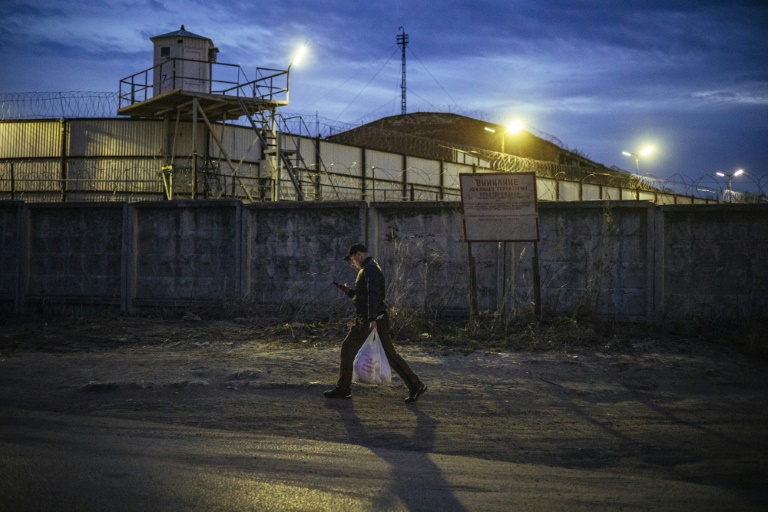
VLADIMIR, Russia: Alexei Navalny's doctors were again denied access Tuesday to the jailed Kremlin critic despite growing concern over the hunger-striking Russian opposition figure's failing health.
A team of medics has been attempting to see the 44-year-old since early this month, after President Vladimir Putin's most outspoken opponent launched a hunger strike on March 31 demanding proper medical treatment for a litany of ailments.
Nearly three weeks into the hunger strike, his doctors over the weekend warned that Navalny's health was failing so rapidly he could die at "any minute," as the United States threatened Russia with "consequences" in the event of his death.
Russia's prison service, which has repeatedly prevented Navalny's doctors from visiting him, said Monday that he had been moved from his penal colony in the Vladimir region some 100 kilometres (60 miles) east of Moscow to a medical facility at another colony in the same region.
A team of physicians including Navalny's personal doctor Anastasia Vasilyeva travelled Tuesday morning to the new colony and was once again barred from seeing him. It was told however to try again later in the day.
"This is super disrespectful to people who came to fulfil their human duty, a medical duty to help a patient," Vasilyeva told AFP outside the colony.
"We are talking now only about health and life."
Navalny's lawyers also arrived at the penal colony on Tuesday and were allowed in, an AFP journalist at the scene reported.
But Navalny's chief of staff Leonid Volkov tweeted that the lawyers were being told to wait and predicted they would not be allowed to see their client.
Navalny is serving a two-and-a-half-year sentence for violating parole terms on old fraud charges he says are politically motivated.
His lawyers and allies are demanding he be transferred to a regular hospital, but the Kremlin has said Navalny is not entitled to special treatment.
Concern has grown in the West in recent days over his condition.
Germany said the European Union would be closely watching to ensure Navalny received necessary care, while Britain called for his release.
The Kremlin has dismissed the outcry, saying that Russian convicts do not concern Western countries.
- Growing pressure -
Navalny was arrested on his return to Russia in January from Germany, where he had spent months recovering from a poisoning attack with the Novichok nerve agent. He blames the attack on Putin, a claim the Kremlin has repeatedly denied.
The European Union and the United States have imposed sanctions on Russia over the poisoning, and on Monday threatened Moscow with further penalties in the event of Navalny's death.
Navalny launched his hunger strike demanding proper medical treatment over severe back pain and numbness in his limbs.
His team over the weekend said a blood test had shown showed high potassium levels and elevated creatinine, indicating Navalny could be suffering from impaired kidney function and risked cardiac arrest.
Russia's prison service insisted his condition was "satisfactory", despite moving him to the medical facility, and said he was taking vitamin supplements as part of his treatment.
Navalny's team has called on supporters to take to the streets across the country on Wednesday -- when Putin is due to deliver his annual state of the nation address -- to protest how he is being treated.
The anti-corruption campaigner's allies, who routinely face police searches and arrests for their activism, are facing increasing pressure from the authorities ahead of the rallies.
Navalny's team said on Twitter on Tuesday that police were searching their offices in the Siberian city of Krasnoyarsk and had detained their coordinator in the Urals city of Kurgan.